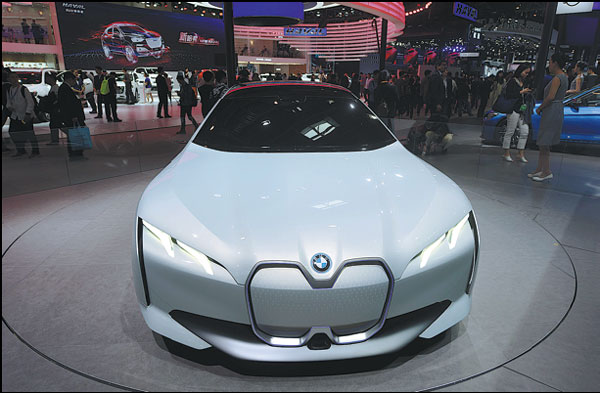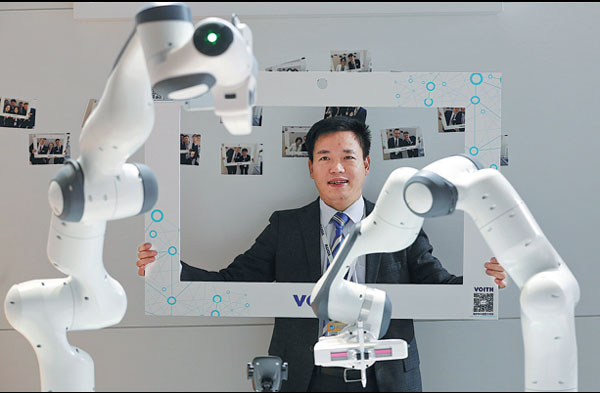German automakers, delivery companies see value in China
The European nation is ramping up investment in Asia's largest economy
With China's economy entering a new era of innovation-driven growth, more German companies have shifted their investment focus from building conventional plants to establishing high-tech factories, innovation and service facilities in China.
Given the country's ongoing manufacturing transformation, Guo Zhongxiao, executive director of the administrative committee of China-Germany High-End Equipment Manufacturing Park in Shenyang, Liaoning province, said the park has already attracted 127 German-funded companies. About 80 percent of their businesses are involved in the automobile industry.
BMW Brilliance Automotive, the park's flagship company, is investing heavily in Shenyang. BMW currently runs assembly plants with a production capacity of 400,000 cars per year in the park, as well as its only power train plant outside Europe and its largest research and development center outside Germany.
|
BMW group displays its pure electric concept car i Vision Dynamics during the Beijing auto show in April 2018. Long Wei / For China Daily |
|
A visitor experiences a camera robot produced by German company Voith during a trade show in Shanghai. Feng Yongbin / China Daily |
The German carmaker's new plant is under construction in the park and will be operational in 2022, growing BMW's production capacity by another 400,000 cars annually.
China and Germany are sharing the high stakes in auto investments, with German investments in China's auto industry remaining strong in the past five years despite economic volatility globally.
The Ministry of Commerce has been building a China-Germany auto investment database for the past two years, said Liu Dianxun, the ministry's director of the investment promotion agency.
Data show that German companies have invested in 250 auto projects worth 11.2 billion yuan ($1.56 billion) in China over the past five years. More than half of the investments went into the R&D of auto parts, he added.
In the meantime, German auto giants have been actively participating in developing auto connectivity networks in China. German brands including Volkswagen, Bosch, Daimler and Continental have all invested in innovation centers and Chinese auto startups in recent years.
"These facts show the majority of global companies' investment decisions are based on market conditions and growth potential, and they are acutely aware that no economy can independently provide all the resources and ideas of innovation for producers or offer all the needed goods and services to consumers," said Xu Mingqi, a researcher with the Shanghai Academy of Social Sciences.
DHL-Sinotrans International Air Courier, a joint venture in charge of DHL Express' business in China, signed an agreement with Ehang, a Guangzhou-based drone company, in May, to jointly launch a fully intelligent drone delivery solution in China.
The solution is to tackle last-mile delivery challenges in urban areas of China. It will make DHL the first international express delivery company to launch such an initiative in China.
Jack O'Neil, deputy senior vice-president of network operations at DHL Express China, said growing demand from Chinese customers for a smart delivery service was the reason behind the partnership with Ehang.
"China's e-commerce grew very fast in the past few years and we have also seen fast growth in demand for an intelligent delivery service," O'Neil said.
The cutting-edge technologies of express drones, along with government policies supporting the drone express service industry, helped the company launch such a unique service with Ehang, According to O'Neil.
Chen Wenling, chief economist at the China Center for International Economic Exchanges in Beijing, said many opportunities also come from the government's new measures such as adding six pilot free trade zones in provinces including Yunnan and Heilongjiang in late August, opening up more sectors and allowing more overseas companies to build wholly owned units in China since 2017.
China's stable domestic market and firm support for multilateralism, surging trade activities with partners related to the Belt and Road Initiative and fast-growing 5G technology have all raised German companies' appetite to invest in China, she said.
zhongnan@chinadaily.com.cn
(China Daily 09/07/2019 page13)
















